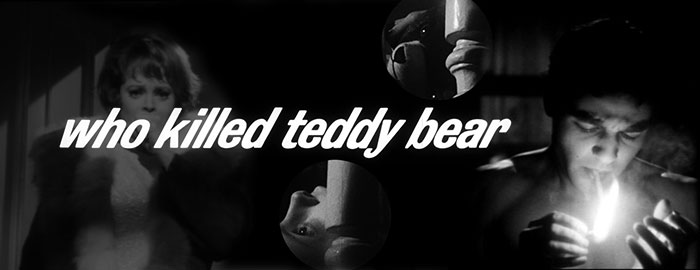

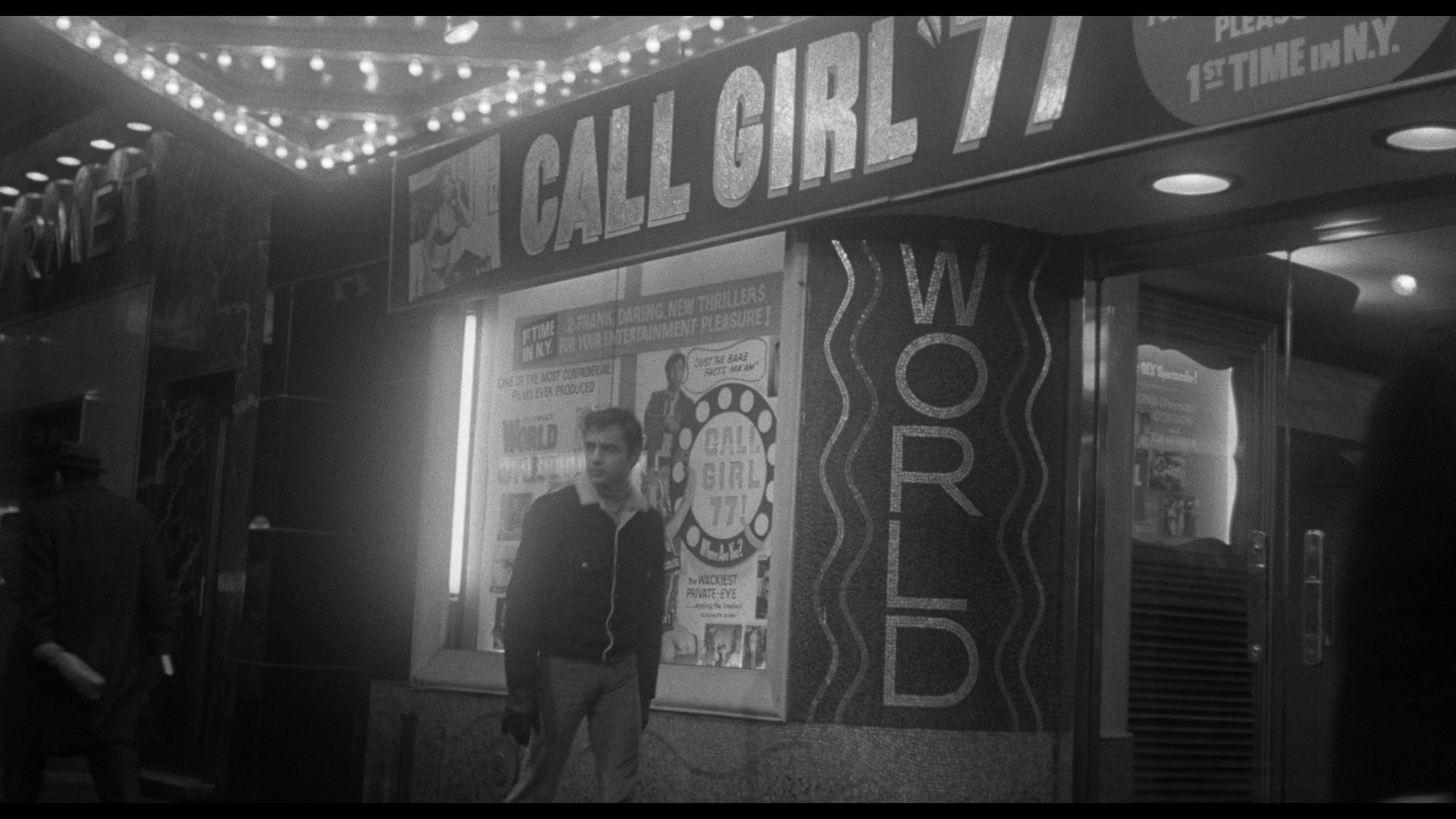 deliciously seedy "mainstream" films made before the new age of the MPAA, Who Killed Teddy Bear has had a seemingly cursed distribution
deliciously seedy "mainstream" films made before the new age of the MPAA, Who Killed Teddy Bear has had a seemingly cursed distribution 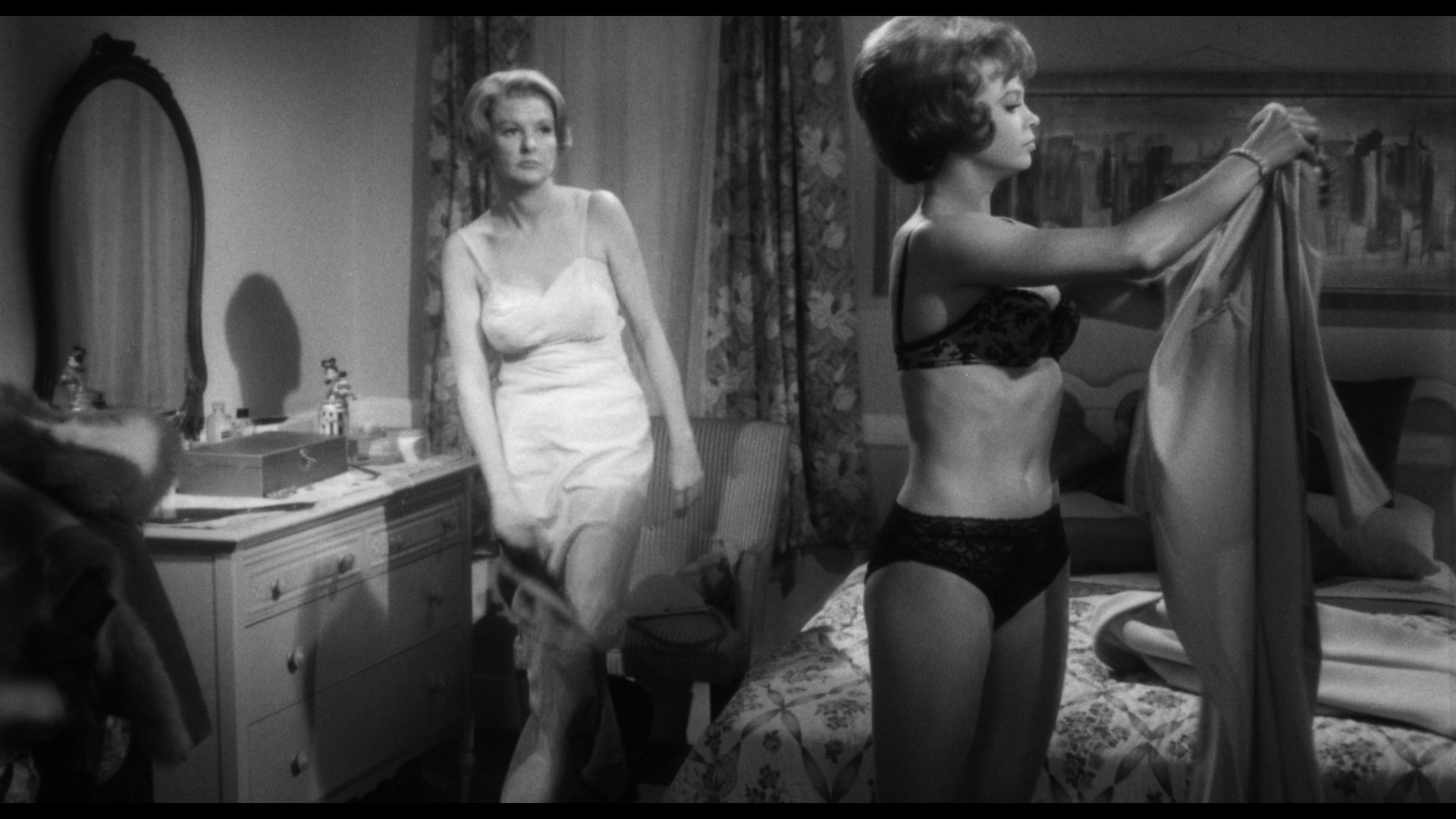 history like many of its Production Code-defying kin. Shot in luminous monochrome and loaded with amazing footage of New York City's grindhouse scene as embodied by a surprising cast, this is a real keeper and worth tracking down at any cost.
history like many of its Production Code-defying kin. Shot in luminous monochrome and loaded with amazing footage of New York City's grindhouse scene as embodied by a surprising cast, this is a real keeper and worth tracking down at any cost. 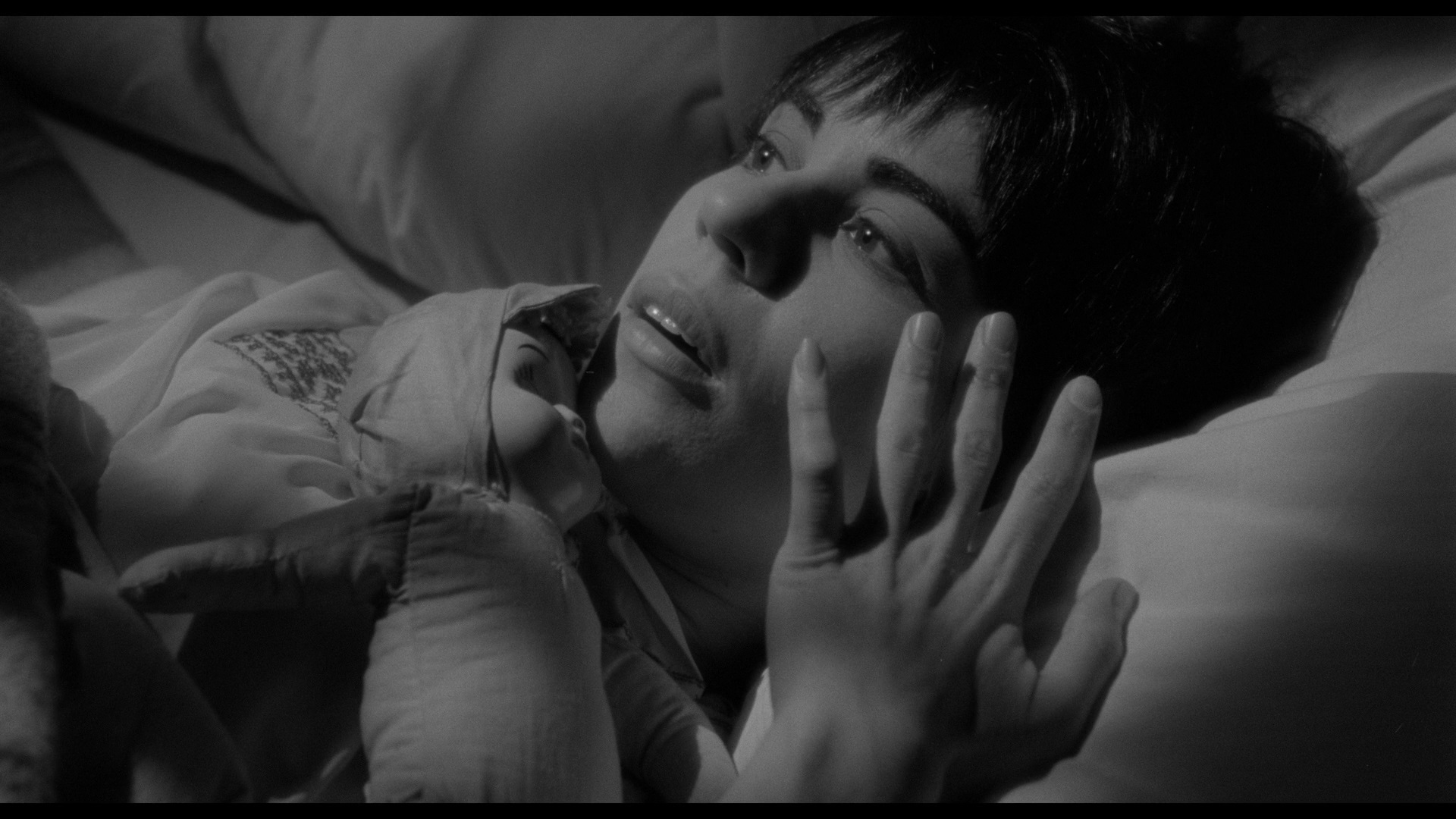 The whole thing was the brainchild of future Guardians of the Galaxy co-creator Arnold Drake, who had just penned The Flesh Eaters and would enjoy a lengthy and influential comic book career;
The whole thing was the brainchild of future Guardians of the Galaxy co-creator Arnold Drake, who had just penned The Flesh Eaters and would enjoy a lengthy and influential comic book career; 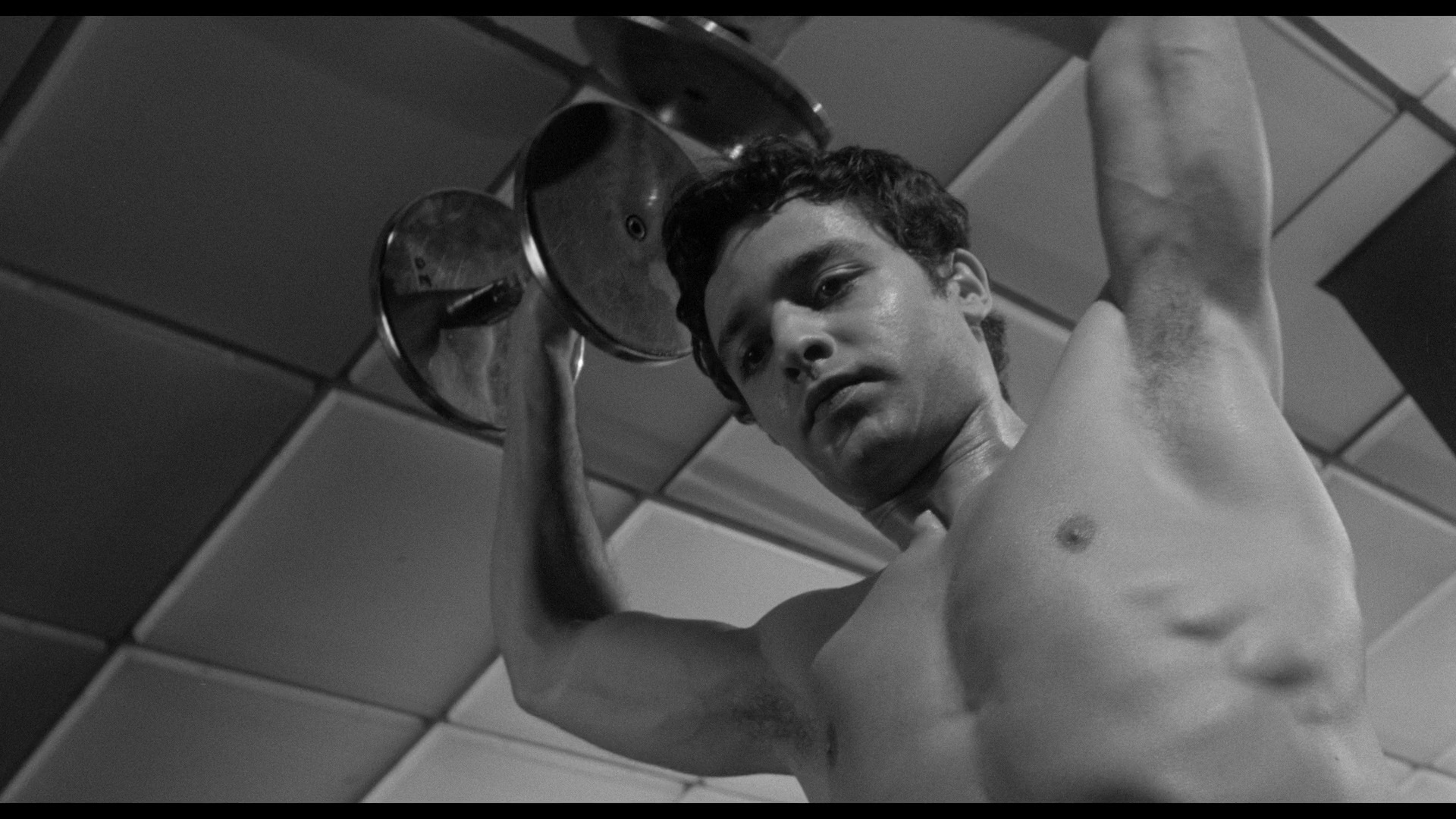 on top of that it was directed by Joseph Cates, father of Phoebe and brother of Gil, who produced and directed about a billion TV specials as well as the oddball comedy The Fat Spy. Throw in a fantastic soundtrack (sadly never given an official release outside of the film itself) and a bizarre supporting cast including a young Daniel J. Travanti (way before Hill Street Blues), Frank Campanella, and even future 007 henchman Bruce Glover (father of Crispin), and you have a cracked curio for the ages.
on top of that it was directed by Joseph Cates, father of Phoebe and brother of Gil, who produced and directed about a billion TV specials as well as the oddball comedy The Fat Spy. Throw in a fantastic soundtrack (sadly never given an official release outside of the film itself) and a bizarre supporting cast including a young Daniel J. Travanti (way before Hill Street Blues), Frank Campanella, and even future 007 henchman Bruce Glover (father of Crispin), and you have a cracked curio for the ages.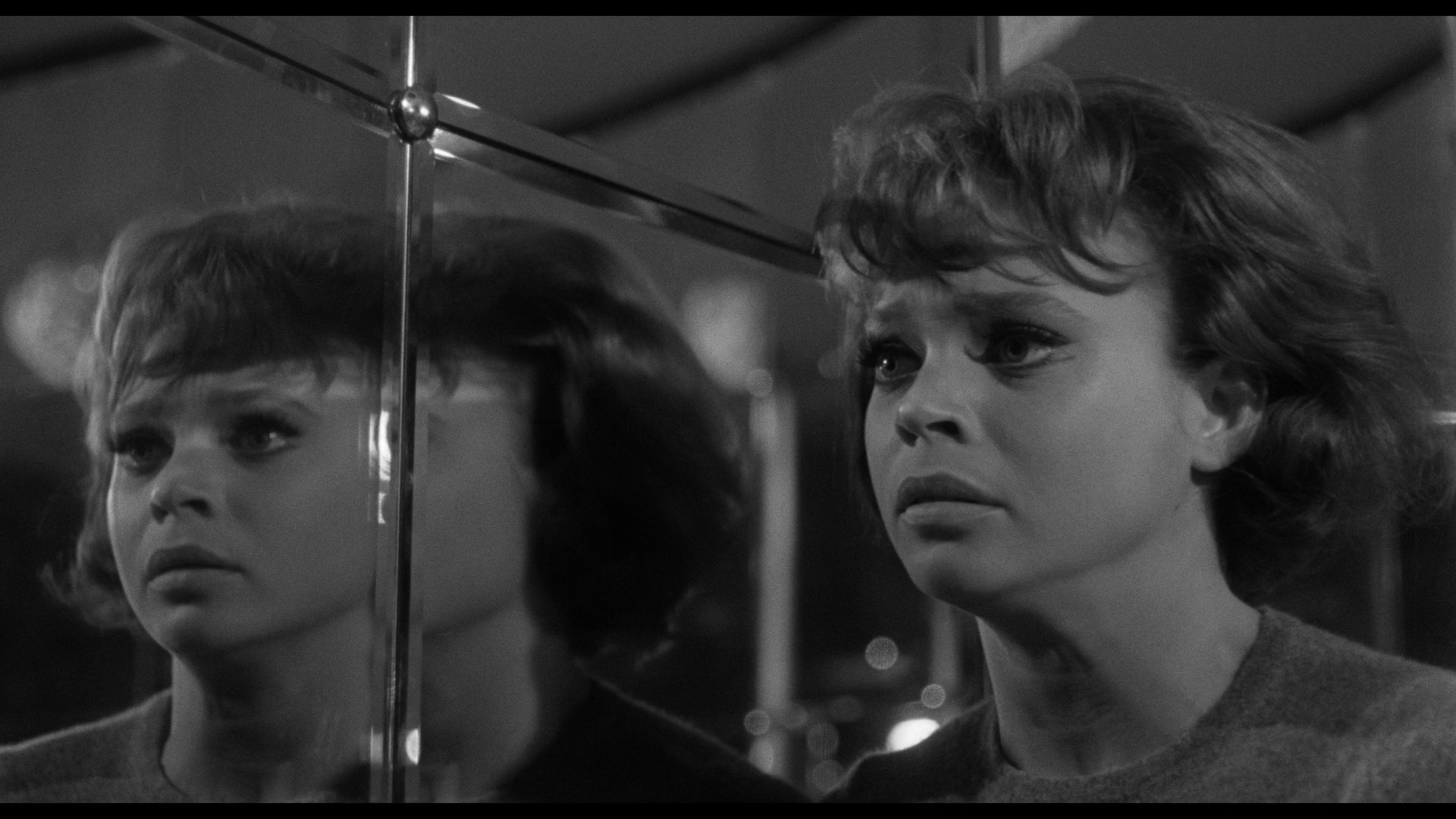 (with Sal guest starring) and the amusing anti(?)-drug short, "LSD: Insight or Insanity?" (18m7s) with Sal narrating about the dangers of teens dropping acid. You
(with Sal guest starring) and the amusing anti(?)-drug short, "LSD: Insight or Insanity?" (18m7s) with Sal narrating about the dangers of teens dropping acid. You 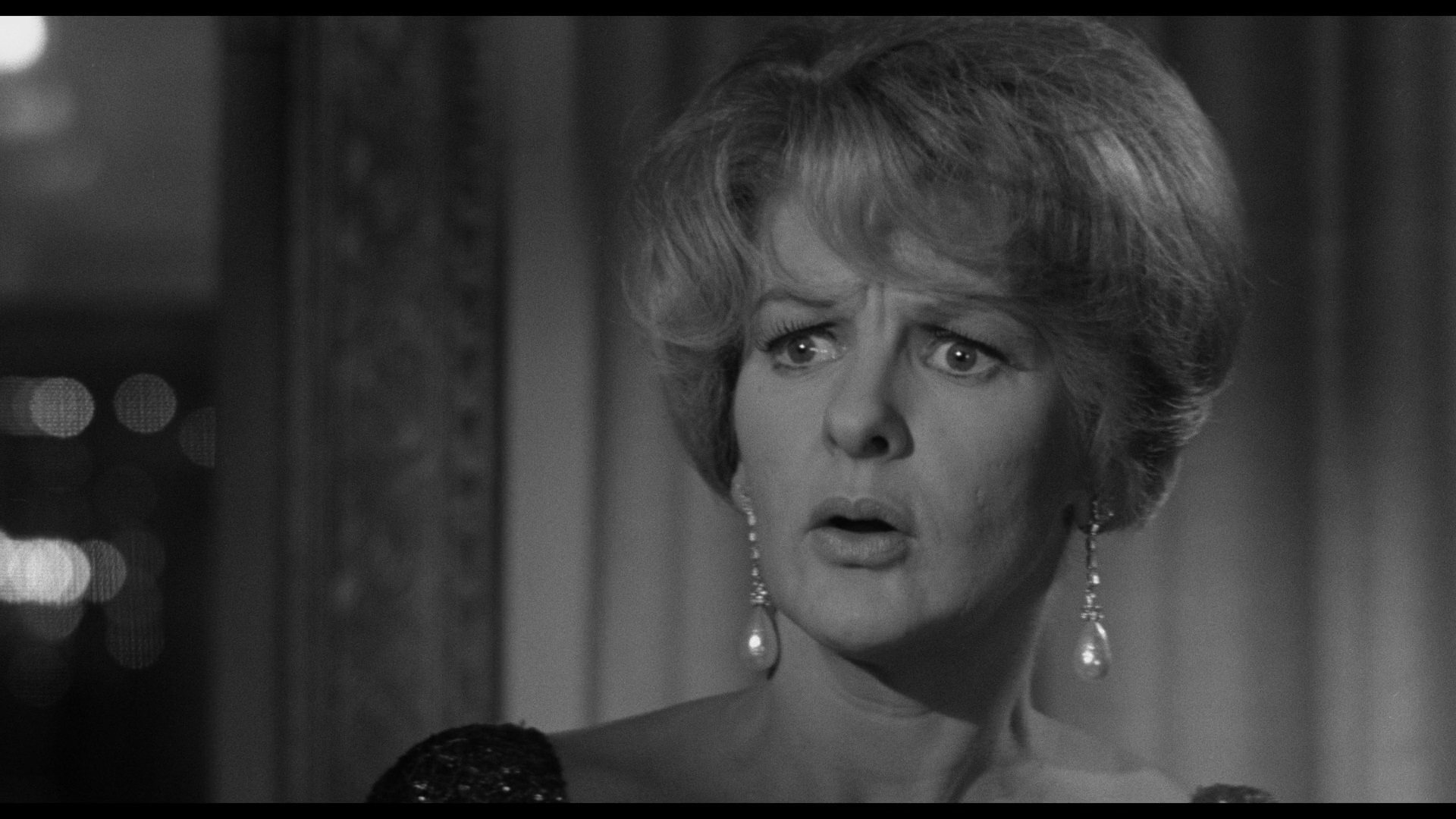 also get a newly created trailer (God knows if one ever circulated during the film's original brief run) and a pdf of the original pressbook. In 2018, Network gave the film its worldwide Blu-ray debut with a significantly improved transfer. Properly matted, it still has some age-related debris here and there including some fine scratches and a bit of dirt here and there, but it doesn't detract at all. The English LPCM mono audio also sounds healthier, and optional English SDH subtitles have been provided. Everything from the prior DVD has been ported over apart from the pdf, which is replaced here with an image gallery of stills and promotional art. An insert booklet features a Laura Mayne essay, "Sexual Transgression in Sixties New York," an excellent and very thorough dissection of the film's fascinating sexual and psychological tensions at a crucial transition period in American filmmaking.
also get a newly created trailer (God knows if one ever circulated during the film's original brief run) and a pdf of the original pressbook. In 2018, Network gave the film its worldwide Blu-ray debut with a significantly improved transfer. Properly matted, it still has some age-related debris here and there including some fine scratches and a bit of dirt here and there, but it doesn't detract at all. The English LPCM mono audio also sounds healthier, and optional English SDH subtitles have been provided. Everything from the prior DVD has been ported over apart from the pdf, which is replaced here with an image gallery of stills and promotional art. An insert booklet features a Laura Mayne essay, "Sexual Transgression in Sixties New York," an excellent and very thorough dissection of the film's fascinating sexual and psychological tensions at a crucial transition period in American filmmaking.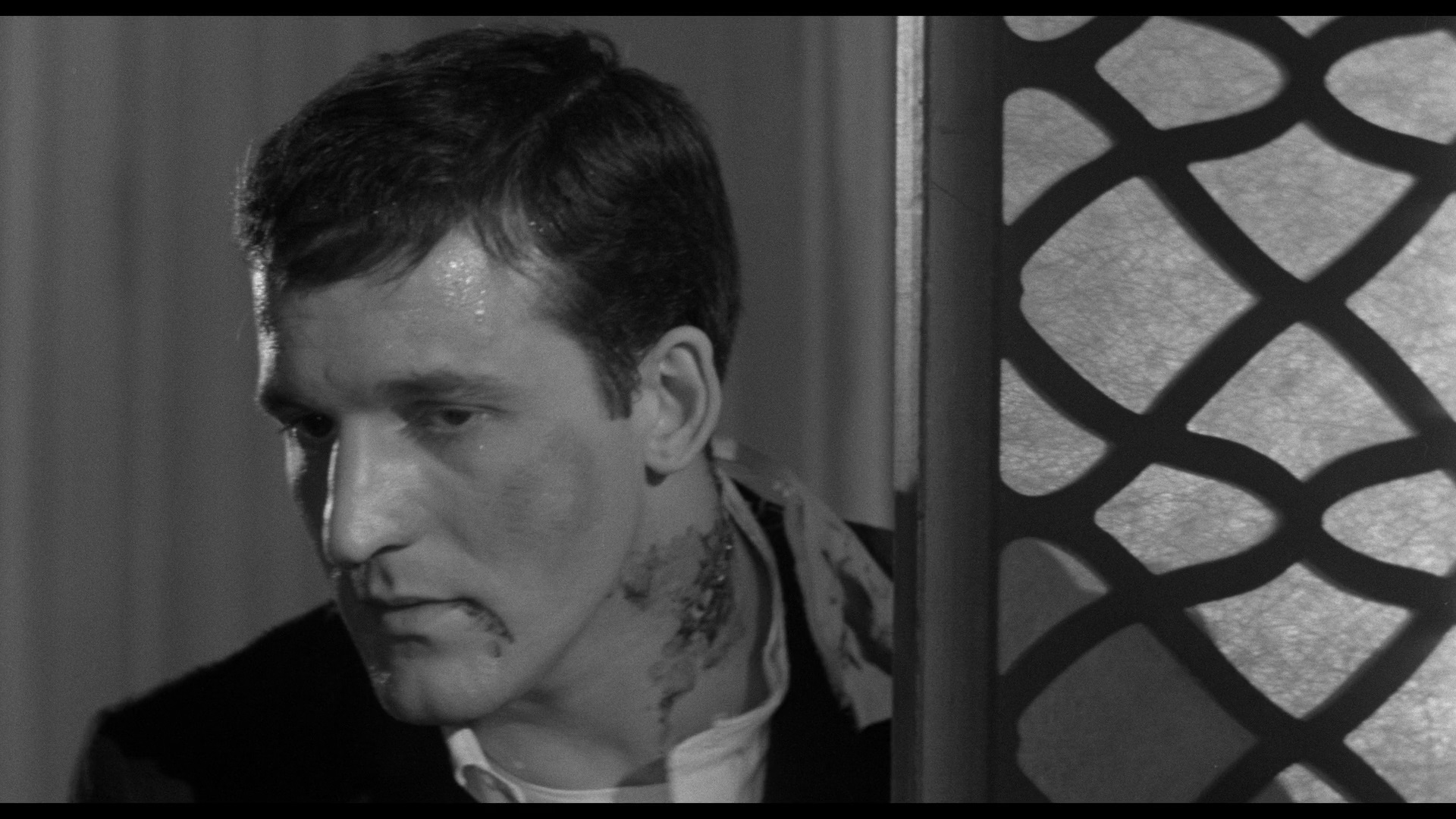 of the initial uncut theatrical version, which clocks in four minutes longer. The differences here are numerous starting with the opening credits, showing scantily clad writhing bodies that were optically blurred on the previous releases (see below for a comparison). The Network release wasn't completely censored (since it featured the ogling Sal Mineo workout scene), but it
of the initial uncut theatrical version, which clocks in four minutes longer. The differences here are numerous starting with the opening credits, showing scantily clad writhing bodies that were optically blurred on the previous releases (see below for a comparison). The Network release wasn't completely censored (since it featured the ogling Sal Mineo workout scene), but it 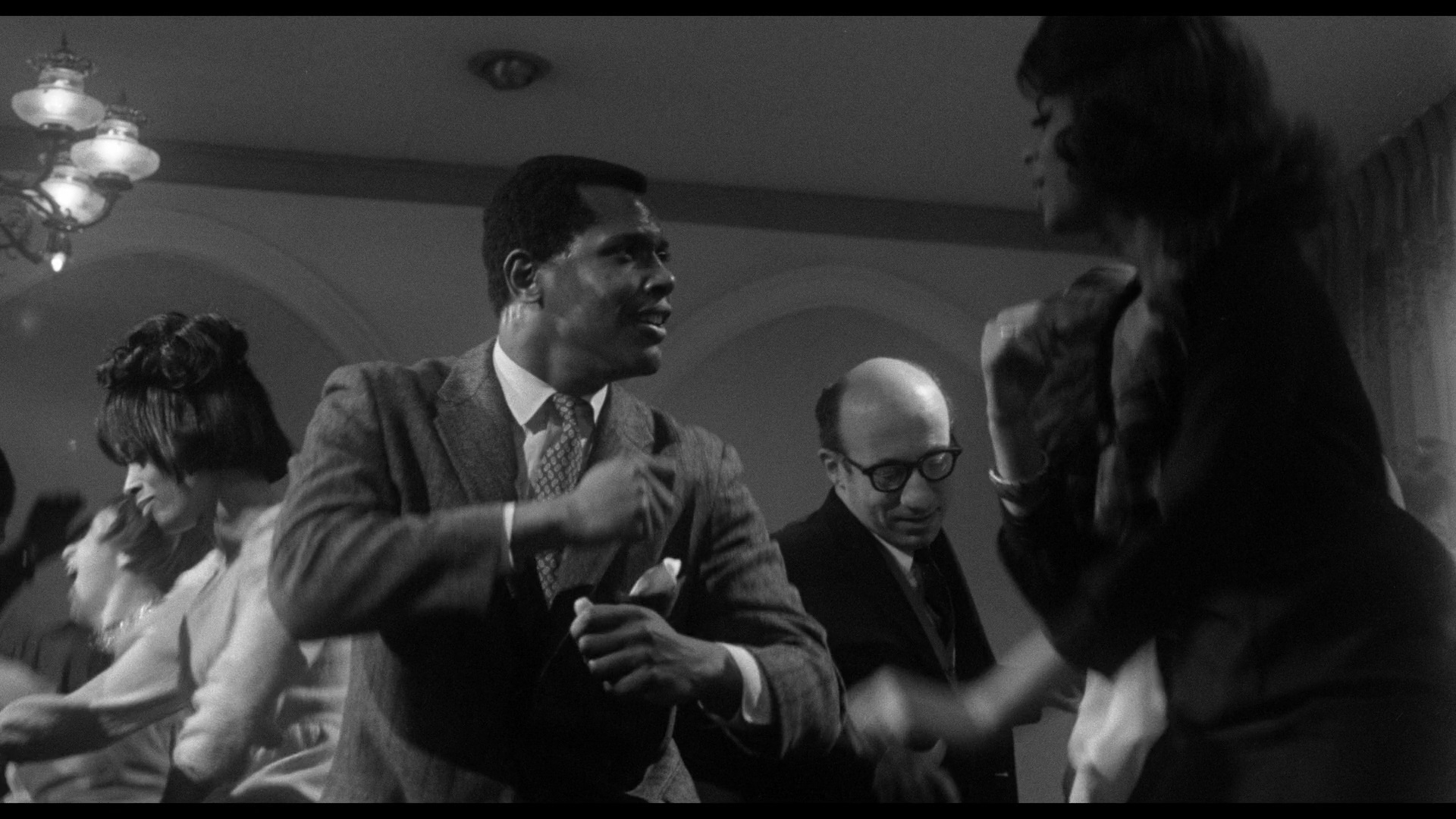 was missing numerous snippets including a lingering tracking shot of nudie magazines and a creepy little bit of implied necrophilia. The image quality is excellent with the new 4K scan coming primarily from the 35mm original camera negative with a 35mm fine grain master used to insert the missing bits; the DTS-HD MA 1.0 English mono track also sounds excellent and features optional English SDH subtitles. A new audio commentary by Elizabeth Purchell and KJ Shepherd does a solid job of covering all the essentials including the differences between the two cuts, the filming locations, the prevalence of queer imagery for a film from a straight director, the curious issue of whether there should be a question mark in the film's title, and much more. "From Left Field" (17m59s) is a new video interview with distributor Mike Thomas, co-founder of Strand Releasing, about the "divey" theater he frequented that dictated his cinematic decisions
and the path to acquiring this film as part of the company's catalog. The Chris O'Neill video essay "The Murder of Innocence" (13m2s) looks at the film as a distinctive example of the strain of tragic melodrama shockers of the time like Lady in a Cage, Peeping Tom, The Collector, etc., which involve depraved young men out of place in society. The locations featurette "Who Filmed Times Square" (12m6s) features Michael Gingold taking you on a tour of the film's locations, starting off in modern Times Square and veering through the key landmarks (including Nora's apartment and the Central Park Zoo). Also included are the original trailer and a gallery of press clippings, while the usual deluxe packaging features a booklet with the essays "Another Toy to Love: Breaking with Gender Norms in the Underworld" by Kyle Turner and "Who Killed Teddy Bear and the Death of the Production Code" by John Charles.
was missing numerous snippets including a lingering tracking shot of nudie magazines and a creepy little bit of implied necrophilia. The image quality is excellent with the new 4K scan coming primarily from the 35mm original camera negative with a 35mm fine grain master used to insert the missing bits; the DTS-HD MA 1.0 English mono track also sounds excellent and features optional English SDH subtitles. A new audio commentary by Elizabeth Purchell and KJ Shepherd does a solid job of covering all the essentials including the differences between the two cuts, the filming locations, the prevalence of queer imagery for a film from a straight director, the curious issue of whether there should be a question mark in the film's title, and much more. "From Left Field" (17m59s) is a new video interview with distributor Mike Thomas, co-founder of Strand Releasing, about the "divey" theater he frequented that dictated his cinematic decisions
and the path to acquiring this film as part of the company's catalog. The Chris O'Neill video essay "The Murder of Innocence" (13m2s) looks at the film as a distinctive example of the strain of tragic melodrama shockers of the time like Lady in a Cage, Peeping Tom, The Collector, etc., which involve depraved young men out of place in society. The locations featurette "Who Filmed Times Square" (12m6s) features Michael Gingold taking you on a tour of the film's locations, starting off in modern Times Square and veering through the key landmarks (including Nora's apartment and the Central Park Zoo). Also included are the original trailer and a gallery of press clippings, while the usual deluxe packaging features a booklet with the essays "Another Toy to Love: Breaking with Gender Norms in the Underworld" by Kyle Turner and "Who Killed Teddy Bear and the Death of the Production Code" by John Charles.
![]()